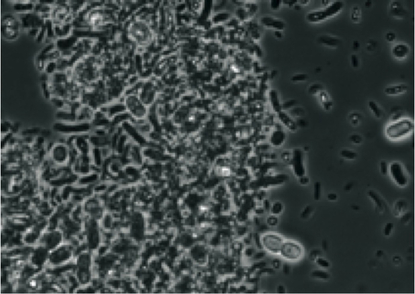Department Environmental Microbiology
Biodiversity-Ecosystem Functioning
Microbial communities provide important services to ecosystems and human society. They maintain global biogeochemical stasis, consume nutrients and pollutants from water and wastewater, and produce value products such as energy resources. These communities are often incredibly biodiverse, with some estimated to contain many thousands of different microbial taxa and express tens of thousands of different genes. Although these levels of biodiversity are intriguing, it is unclear whether and how broadly biodiversity affects the provision of particular ecosystem services. What types of ecosystem services are likely to be affected by changes or differences in biodiversity and what types are not?
We are addressing this question using wastewater treatment plant communities. We first apply metabolic-profiling methodologies to measure the rates of hundreds of different ecosystem functions in parallel. We then perform metagenome and metatranscriptome sequencing to quantify measures of taxonomic and functional biodiversity. Finally, we identify the types of ecosystem functions whose rates do or do not associate with biodiversity. Ultimately, we hope to derive general rules that allow us to predict whether a particular ecosystem service is likely to be affected by changes or differences in biodiversity.
This project is part of a larger Marie Curie – ITN project: Microbial Resource Management & Engineering to Close the Urban Water Cycle (MERMAID). The consortium is comprised of 13 doctoral students and 1 postdoctoral researcher located at five universities throughout Europe. The main goals of the project are:
- to understand how microbial communities affect the safety and sustainability of water supplies
- to develop the conceptual foundations and practical tools needed to control those microbial communities


